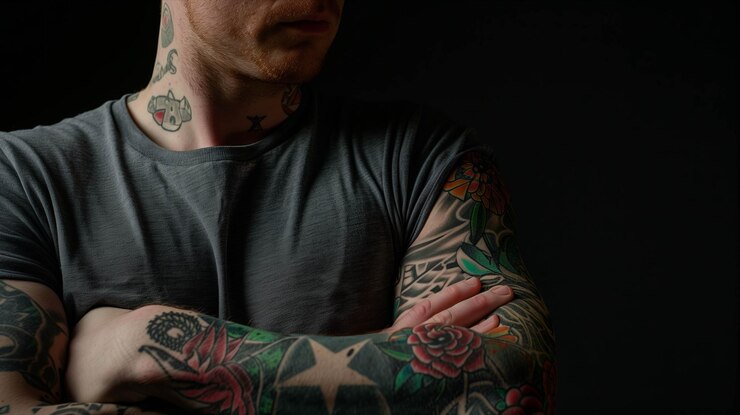Question
I am a revert to Islam, and I already have tattoos from before. I don’t have the money to remove them right now. Do my tattoos affect my wudu or salah?
Bottom Line
Tattoos may mark the skin, but they do not break wudu or salah.
Quick Answer
No. Tattoos do not invalidate wudu or salah. Ablution is broken only by specific actions mentioned in the Qur’an and Sunnah, such as natural discharges, deep sleep, or touching private parts. Tattoo ink sits beneath the skin, so water still reaches the skin in wudu and ghusl.
Key Takeaways
- Wudu nullifiers are clearly defined; tattoos are not one of them.
- Tattoo ink is under the skin, not on top, so it does not block water.
- Wudu and ghusl remain valid even with tattoos.
- A revert with tattoos does not need to remove them for their prayers to be valid.
Detailed Answer
Tattoos are made by injecting ink into the dermis layer of skin. Since the ink lies beneath the surface, it does not prevent water from reaching the skin during wudu or ghusl.
The Prophet ﷺ said:
“Allah has cursed those who do tattoos and those who get them done.”
Sahih al-Bukhari 5937
This curse applies to the act of tattooing itself, not to the validity of wudu or salah.
For reverts, past sins are wiped away when they embrace Islam:
“Except for those who repent, believe, and do righteous deeds. For them Allah will replace their sins with good deeds.”
Qur’an 25:70
Health issues: Modern studies show tattoos can carry risks such as skin infections, allergic reactions, or bloodborne diseases if unsterile equipment is used.
Costs of removal: Laser tattoo removal is available but expensive, usually $200–$500 per session, and multiple sessions are often needed. For many, it is not affordable.
Historical reasons for tattoos: In pre-Islamic Arabia, tattoos were common for tribal identity, superstition, or beauty. Islam prohibited them from destroying natural creation, avoiding harm, and distancing Muslims from practices of jahiliyyah.
What This Means for You
As a revert with tattoos, your wudu and salah are fully valid. You do not need to remove them to worship Allah. If they were from before Islam, they are forgiven. If done after, sincere repentance is sufficient. What matters most is your heart turning back to Allah.
And Allah knows best.
References
Primary Sources
Qur’an
- Al-Ma’idah 5:6: Verse prescribing wudu obligations.
- Al-Furqan 25:70: Past sins are forgiven upon repentance and belief.
Hadith
- Sahih al-Bukhari 5937: Curse upon those who tattoo or are tattooed.
Secondary Sources
- Al-Nawawi, Sharh Sahih Muslim: Commentary on tattooing in Kitab al-Libas.
- Ibn Qudamah, al-Mughni: Hanbali discussion on Taharah.
- Al-Kasani, Bada’i al-Sana’i: Hanafi rulings on purification.
Modern Research & Reports
- Mayo Clinic (2023): Risks of tattoos include infections, allergic reactions, and scarring.
- American Society of Plastic Surgeons: Tattoo removal is expensive and requires multiple sessions.
- JAMA Dermatology (2018): Reports long-term risks of tattoo inks, including heavy metal exposure.
Was this helpful?
Leave Your Comments
© Copyright 2025, All Rights Reserved

